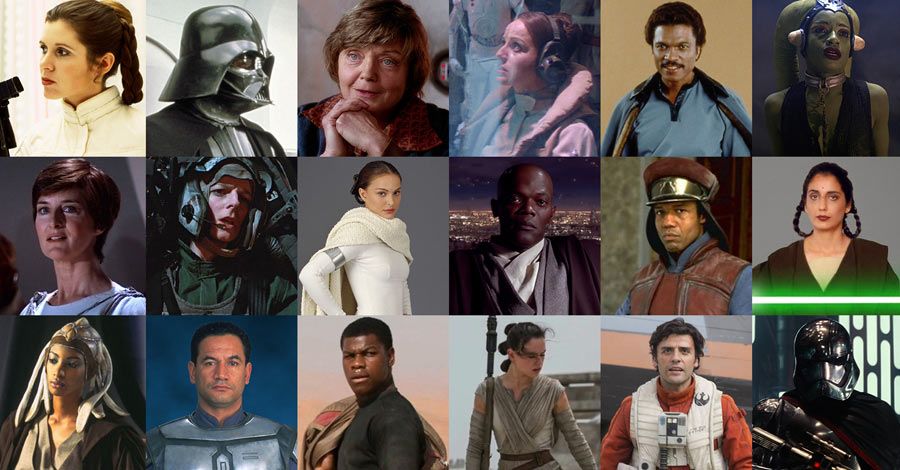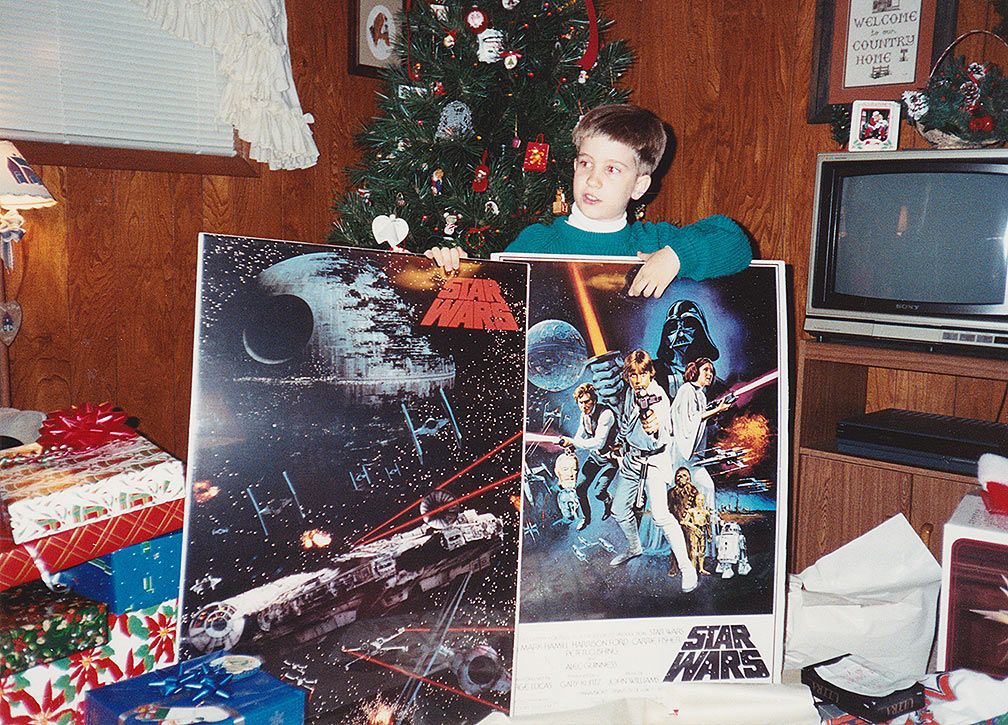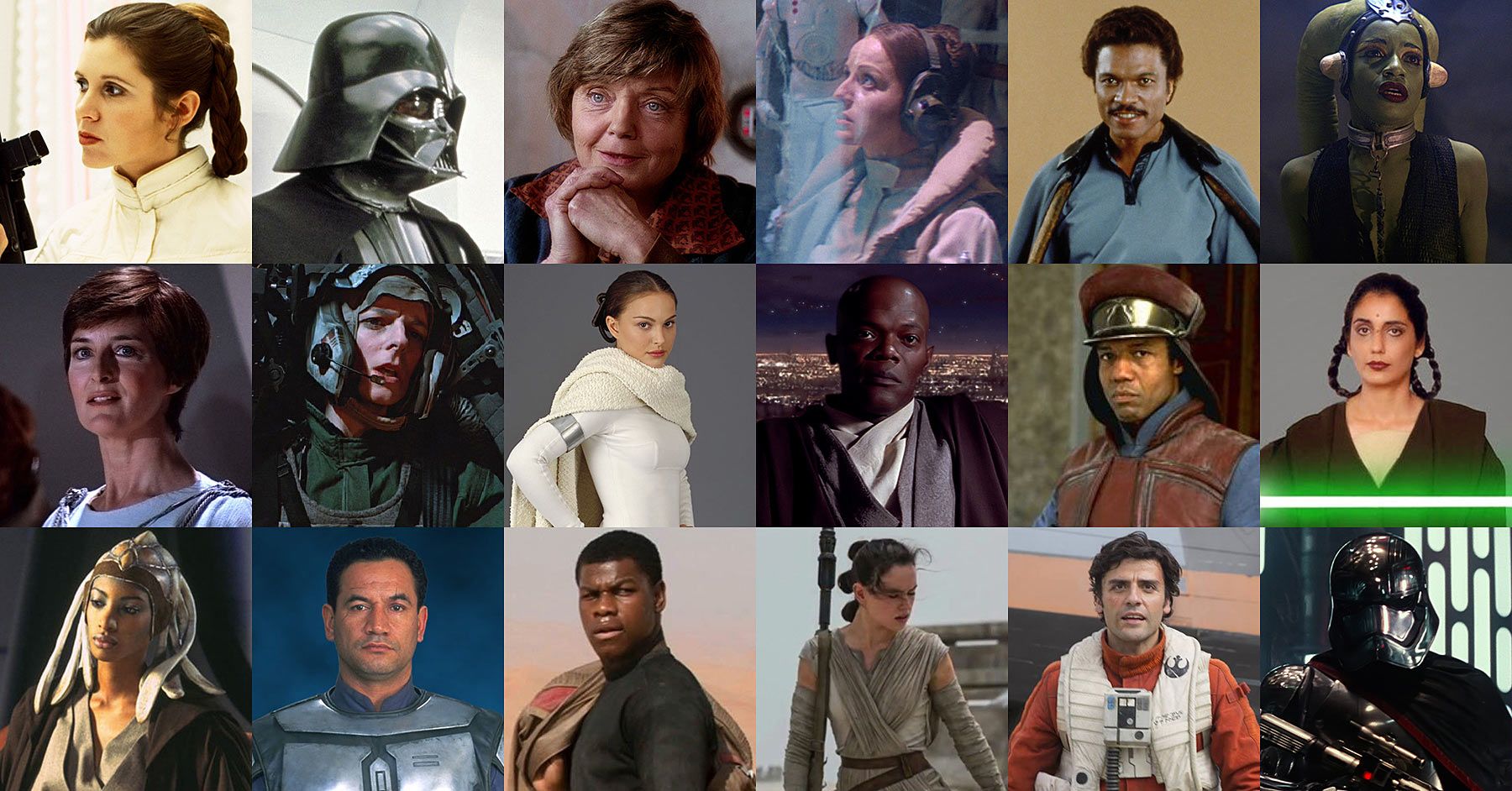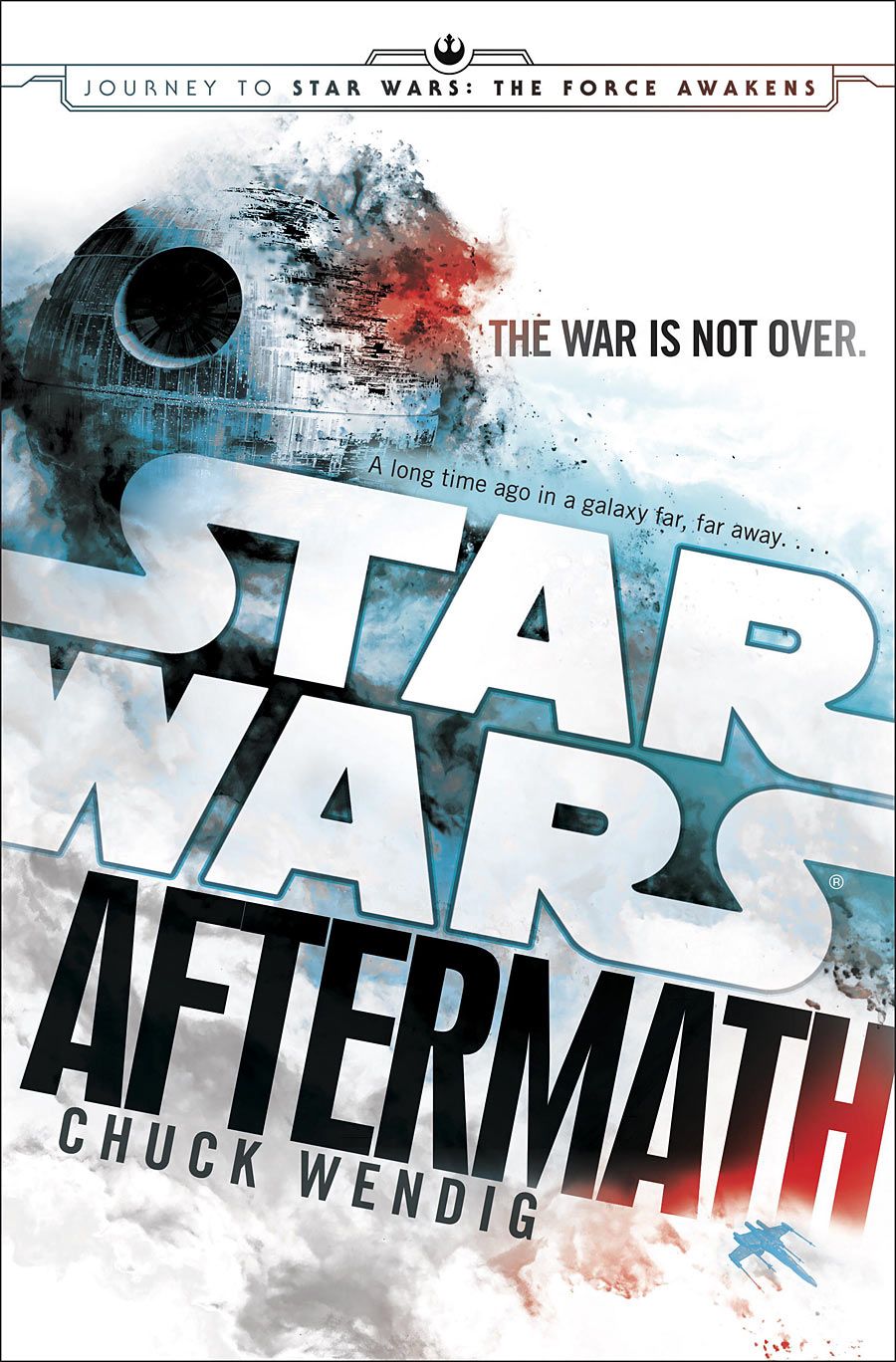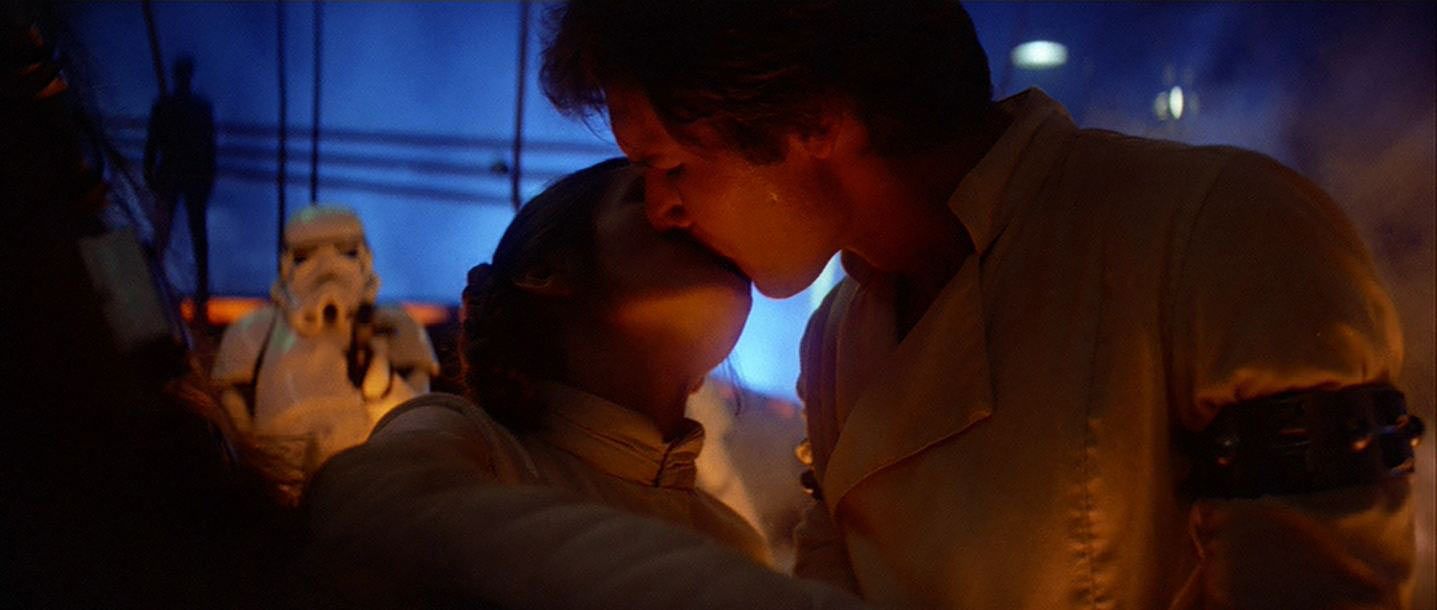Monday was a big day for Star Wars fans like myself; I got to spend a frantic five minutes scrambling for tickets to a movie that's still two months out before Fandango blew up like a Death Star, and I got to see a brand new "Star Wars: The Force Awakens" trailer. How did that make me feel? Fortunately (?) my fiance captured the height of my euphoria here.
I love this stuff.
WATCH: "Star Wars: The Force Awakens" Opens Fire With New Trailer
Of course Monday was also the day that a handful of aggressively, disgustingly racist Twitter trolls succeeded in getting a dumb, dumb hashtag trending on Twitter. You can read Vox's look at the Twitter cesspool that spawned it, because I don't feel the need to giving any more attention to that hashtag than I already am.
Forget the Empire or the Sith, there's a new menace plaguing "Star Wars": stone cold racists. And misogynists. Oh, and homophobes. Like bounty hunters on the bridge of a Star Destroyer, a wide range of scum has lined up to growl and scowl menacingly at those they deem beneath them. The thing is, these people think they're the heroes of this story, all the while remaining oblivious to the fact that they're a bunch of Darths.
This isn't an isolated incident. There's a lot of gross stuff out there when it comes to Star Wars; it doesn't outweigh the good, and believe me when I say I spend the majority of my brainpower experiencing all the good, but it exists. When you look at the spread of that hashtag with other things, like the content of the 1-star Amazon reviews of Chuck Wendig's new "Aftermath: Star Wars" novel, you start to see a pattern: after almost forty years, Star Wars is growing with the times and shifting its focus towards non-white, non-straight and non-male leads -- and some people are angry.
From what (thankfully) little we know about "Star Wars: The Force Awakens," it appears that the film has three leads: Rey (Daisy Ridley, a white woman), Finn (John Boyega, a black man) and Poe Dameron (Oscar Isaac, a Latino man). The film also counts Gwendoline Christie as the imposing chrome stormtrooper Captain Phasma and Lupita Nyong'o as a motion-capture alien. The bad guys are all white men: Adam Driver, Domhnall Gleeson, Andy Serkis. This was not unintentional and, as I'll get to in a moment, not new for Star Wars.
"Force Awakens" co-writer and director J.J. Abrams addressed the diversity of his cast during the "Star Wars" presentation at this year's Comic-Con International, saying that he "wanted the movie to look the way the world looks, and I think it is important that people see themselves represented in film." That emphasis is mine, because -- spoiler for a few paragraphs down, y'all -- that's the whole point.
But before I get to that, I want to dispel the notion that women and people of color are just now being added to Star Wars. That's not true. To prove that point, I slapped together an image featuring 18 women and non-white characters/actors from the six existing "Star Wars" feature films and what we've seen of "The Force Awakens."
Yeah, 18. I know I left a few out, as well. The point is, the Star Wars movie-verse has always been a diverse one, even if we didn't realize it; hell, the movies themselves didn't even realize it most of the time. No, I can't pretend like the two trilogies are wonderfully diverse representations of the human race because, well, they weren't. I feel like it's incredibly important to acknowledge that these people have been around in a galaxy far, far away while also pointing out that the movies themselves haven't always treated those characters well.
There are the obvious leads: Leia, Lando, Padme and Mace. There are a few notable supporting players (Aunt Beru, Mon Mothma, Captain Panaka and Jango Fett). There's Darth Vader, who was voiced by James Earl Jones even though three white men played the unmasked Anakin Skywalker role. And then there are the background players: Jabba's dancer Oola, Echo Base communications officer Toryn Farr, Jedi Council members Depa Billaba and Adi Gallia, and the female fighter pilots that were cut out of "Return of the Jedi" (or in one instance, had her voice dubbed over with a man's). The Star Wars movies mostly stuck to having only two women with speaking lines per film, and Lando, Jango and Mace are the only real notable people of color in the films.
But, they exist. They're canon. The thing Abrams is doing differently this time around is instead of dubbing Christie's stormtrooper over with a male voice or relegating Boyega's character to only one scene or pushing Ridley down a few rungs to third-billing, he's letting them get the focus. That's the real, major difference -- and what's wrong with that? And when it comes to making all the bad guys white, well, look at the Empire. Of the 18 characters I pointed out, exactly zero of them are Imperials or villains; the closest you get is Jango Fett, a bounty hunter. The Imperial officers are all white men; if it wasn't for the newly established Expanded Universe introducing a lesbian (Moff Mors) and a woman of color (Rae Sloane) into the ranks, the Empire would still look as white and straight as trolls assume Star Wars always was.
"It is important that people see themselves represented in film." All you need is the basic amount of empathy to understand why the cast of "The Force Awakens" is so important. The hate-tweets and hate-reviews aren't showing off anyone's wit and they aren't cutting to some narrow-minded deeper truth; they only reveal a lack of empathy, a lack of viewing other people as human beings worthy of feeling good about themselves. I will never understand what makes someone, professed "fans" of Star Wars, say "Nope, sorry, some people aren't allowed to feel a deep connection with this awesome, omnipresent cultural juggernaut." Everyone has to see Star Wars, but only some get to be Star Wars. That's wrong.
I'm coming at this from two different, very resonant places: one, as a guy that spent 21 years thinking he was part of the straight, white male social group that gets catered to all the time; and two, as a -- whoops -- actually gay man that realized a kinda key thing about himself later than most because of the lack of seeing himself represented in media.
In regards to the first angle, I remember being six years-old and, upon watching "Return of the Jedi" for the first time, looking in a mirror and saying out loud, "I look like Luke Skywalker. He could be my brother." Now, I'm not gonna defend six year-old me's statement about looking like a 32 year-old man, but the point stands: I'm white and I had light brown hair, Luke was white and had light brown hair (sadly, I started going gray before Hamill). But even though Han Solo -- another white guy -- had a massive impact on my personality and the lens with which I view all fiction, I still felt a point of connection just because I thought I looked like Luke Skywalker.
Quote of the Day | Chuck Wendig Responds to Critics of "Star Wars: Aftermath's" Gay Protagonist
Fast-forward a few decades to literally a month ago, and I experienced another, similar Big Star Wars Moment -- one that came about because of the recent push towards diverse leads. Being obsessed with Star Wars again, I thought I might check out Chuck Wendig's "Aftermath: Star Wars"; when I learned that one of the leads was a gay man, I changed that "might" to "oh it's already on my iPad that happened quickly." Wendig gave me something that I never thought I would get from Star Wars, something I didn't even know I needed from Star Wars: Sinjir Rath Velus, an ex-Imperial officer that's quick with his wits and quips as well as his fists. He's scruffy, usually a little bit drunk, and he's gay. He's gay Han Solo. He's gay Han Solo. My heart jumps into my throat just reading that, it means so much to me.
I never saw gay characters like myself anywhere growing up; it's why I kept trying to date girls through to my senior year of college. If the original post-"Return of the Jeid" novel "Heir to the Empire" had had a Sinjir in it, I know that my life would have been changed. I love that character because he's the Han Solo archetype that I've repeatedly geeked out over since I was six, but he means even more to me because he, being gay, validates my metaphorical place among the ranks of the Rebellion. There are parts of America where I do not feel comfortable being an out homosexual, but Sinjir's existence makes me feel finally, truly welcome in Star Wars -- a thing I love and a safe space I return to over and over again.
But a lot of Amazon reviewers don't get that. They think that the mere existence of Sinjir -- and by extension, me -- is a political act, and that his one mention of being gay in a 500-page novel is "too much." Those people lack basic empathy as well as critical thinking skills; the infamous "I love you"/"I know" scene in "Empire Strikes Back" is never cited as an example of forcing heterosexuality on an audience, yet that (absolutely amazing) scene is much more involved, intimate, prolonged and romantic than Sinjir saying, "I'm not into... this" and clarifying "women." One page out of 500. I've watched almost nothing but straight romances my entire life and it hasn't changed who I am, so I'm fine with eye-rolling at all those gay-panic gripes.
Even if all of this is shrugged off as the rants of a social justice warrior, there's one thing that I know can get to the heart of a certain breed of Star Wars fan: canon. The Empire as depicted in the films is all white, all male, and objectively/factually/canonically evil -- what with the genocide, conquest, ruthlessness, merciless murder of insubordinates, merciless murder of innocents, merciless murder period. The Rebels, our heroes, have plenty of white men, but they also have women in the ranks and in positions of power; they have people of color flying X-Wings and leading armies; they are compassionate, trusting, empathetic and respectful of other cultures (no one forces Nien Nunb to speak Basic!). And now, thanks to the new expanded universe, even the Empire doesn't stoop to being racist, sexist or homophobic. Don't side with the Empire, guys, and definitely don't be worse than the Empire. Embrace empathy and try to feel the joy of seeing other people connect with the thing you love.
"It is important that people see themselves represented in film."
Brett White is a writer and comedian living in New York City. He made videos for the Upright Citizens Brigade as a member of UCB1 and writes for the podcast Left Handed Radio. His opinions can be consumed in bite-sized morsels on Twitter (@brettwhite).

